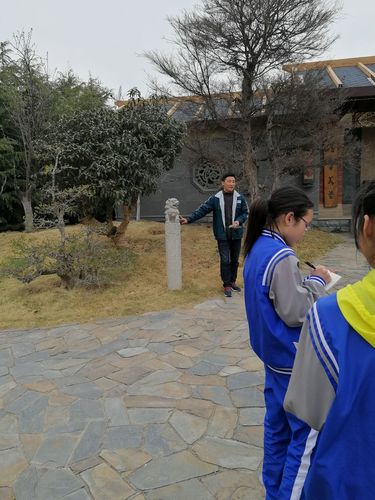1.PlanningtheItinerary
Title: Literary Field Trip: Exploring the World of Literature
Engaging in a literary field trip is an enriching experience that offers participants the opportunity to immerse themselves in the captivating world of literature. Whether it's visiting famous literary landmarks, attending book readings, or exploring libraries and museums, such activities provide insights into the cultural and historical context behind literary works. Let's delve into the various aspects of organizing and participating in a literary field trip.
The first step in organizing a successful literary field trip is to plan a comprehensive itinerary. Researching prominent literary sites, such as authors' homes, literary museums, and iconic bookstores, is essential. Consider including a mix of locations that cater to different interests, from classic literature to contemporary works.
Visiting literary landmarks allows participants to walk in the footsteps of renowned authors and gain a deeper understanding of their lives and works. Whether it's touring Shakespeare's Globe Theatre in London, exploring the Hemingway House in Key West, or visiting the Louisa May Alcott's Orchard House in Massachusetts, each destination offers a unique glimpse into literary history.
Attending book readings and author events provides an opportunity for participants to interact with contemporary writers and gain insights into their creative process. Many bookstores, libraries, and cultural institutions host author signings, readings, and panel discussions where readers can engage with their favorite writers and discover new voices in literature.

Exploring libraries and literary museums offers a treasure trove of literary artifacts, manuscripts, and rare books. Institutions like the British Library in London, the Library of Congress in Washington, D.C., and the New York Public Library house extensive collections that showcase the evolution of literature through the ages.
Participating in literary workshops and discussions provides an opportunity for participants to hone their writing skills, engage in critical analysis, and connect with fellow literature enthusiasts. Workshops may cover various topics, including poetry writing, fiction techniques, and literary criticism, catering to writers of all levels.
Documenting the literary field trip through photos, journal entries, or blog posts preserves memories and allows participants to reflect on their experiences. Encourage participants to share their thoughts, impressions, and favorite discoveries, fostering a sense of community and camaraderie among fellow travelers.
Upon returning from the literary field trip, take time to reflect on the impact of the experience. Discuss favorite moments, memorable insights, and newfound appreciation for literature. Consider how the journey has enriched your understanding of literary works and inspired a deeper connection to the world of letters.
A literary field trip offers a captivating journey through the realms of imagination, creativity, and literary heritage. By exploring literary landmarks, attending author events, and engaging in literary discussions, participants can deepen their appreciation for literature and forge lasting connections with fellow enthusiasts. Whether embarking on a solo adventure or joining a group excursion, a literary field trip promises to inspire, educate, and delight.










